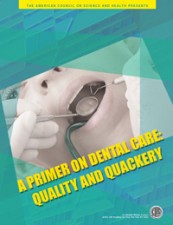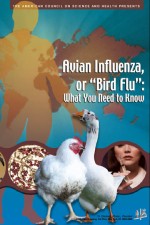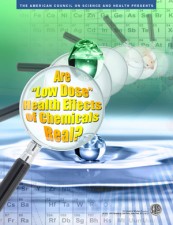 Experts on dental health fraud suspect that over a billion dollars a year is spent on dubious, unnecessary, and poor-quality dentistry. Dental diseases are among the most common ailments in the United States, accounting for over $70 billion in bills.
Experts on dental health fraud suspect that over a billion dollars a year is spent on dubious, unnecessary, and poor-quality dentistry. Dental diseases are among the most common ailments in the United States, accounting for over $70 billion in bills.
Search results
A class of brominated flame retardants known as polybrominated diphenylethers (PBDEs) are under assault from environmental activists and regulators both in the United States and overseas. Flame retardants give people more time to escape a fire by delaying flashover, the explosive-like eruption of flames responsible for most of the fatalities and property damage in residential fires. PBDEs are particularly effective flame retardants and have long been widely used in the manufacture of televisions and other electrical equipment, furniture, and mattresses.
New York, New York -- August 15, 2006. Low-level radiation -- from natural or man-made sources -- is unlikely to pose a threat to human health, according to scientists associated with the American Council on Science and Health (ACSH). In a new publication, "What's the Story? The Health Effects of Low-Level Radiation," ACSH explains the various types of exposure to low-level radiation and the ways in which experts assess their effects on health.
Sir,
With reference to your report, "Infection milder but more widespread, study finds" (January 10), the new study from Vietnam and the Karolinska Institute in Stockholm, which concludes that there are far more human cases of mild H5N1 avian influenza than World Health Organisation tallies suggest, does not warrant rethinking the current bird flu paradigm or viewing H5N1 as a lesser threat.
Aside from the preliminary nature of these findings, two important methodological limitations in the study should be noted.
 Since late 2003, birds in over a dozen nations in Asia and at least seven nations in Europe have been struck by H5N1 "avian influenza" or "bird flu." Since 2003, there have been 175 confirmed cases of H5N1 transmission from birds to humans in Cambodia, Indonesia, China, Thailand, Turkey, Iraq, and Vietnam.
Since late 2003, birds in over a dozen nations in Asia and at least seven nations in Europe have been struck by H5N1 "avian influenza" or "bird flu." Since 2003, there have been 175 confirmed cases of H5N1 transmission from birds to humans in Cambodia, Indonesia, China, Thailand, Turkey, Iraq, and Vietnam.
Last night almost the entire ACSH staff trekked down to Times Square to see a preview of Thank You for Smoking, based on the Christopher Buckley novel (a very humorous one indeed) about Nick Naylor, the smokesman -- er, spokesman -- for the tobacco industry's pseudo-scientific research arm.
We all enjoyed it and laughed at the debates among the lobbyist characters over which of their industries killed more people -- cigarettes, alcohol, or guns. Clearly, as the tobacco rep argued, his industry won hands down. No debate there!
Foods and beverages containing sugar substitutes are widely used in the United States and other countries; they offer attractive dietary options for people who are trying to limit calorie intake and/or reduce the risk of tooth decay.
This piece first appeared in the New York Post and was reprinted June 19 by Canada's National Post:
This piece appeared in the Orange County Register.
Rachel Carson, who would have turned 100 today, wrote Silent Spring, the book published in 1962 that started the modern wave of anti-chemical environmental paranoia. Now, even peer-reviewed scientific journals are absent-mindedly repeating her brand of scare-claims.
New York, New York, January 10, 2007 — At the annual meeting of the Board of Trustees of the American Council on Science and Health (ACSH) two Trustees and 22 distinguished scientific and policy advisors were elected to serve on ACSH’s Board of Trustees and Board of Scientific Advisors, respectively.
A November 2, 2006 item on the Competitive Enterprise Institute's OpenMarket.org blog plugs Dr. Whelan:
Elizabeth Whelan of ACSH has a great article on National Review Online today about the stupidity of banning trans-fats, as New York City and Chicago have done...
 This report examines the "low-dose hypothesis" the idea that in some instances, low doses of a substance may have adverse effects that do not occur at higher doses.
This report examines the "low-dose hypothesis" the idea that in some instances, low doses of a substance may have adverse effects that do not occur at higher doses.
In an action that will surprise many, the American Dental Association (ADA) has endorsed chewing gum to help prevent cavities. If there's any habit dentists have been warning against for generations, it's chewing gum. So why the apparent U-turn? The difference is that the ADA is espousing the use of sugarless gum, particularly gums sweetened with the sugar alcohols xylitol and sorbitol.
Today, I sent the following letter to Renée R. Jenkins, M.D., of the American Academy of Pediatrics, who led the effort to chastise ABC for its plan to air an episode of its new lawyer drama, Eli Stone, this Thursday, in which anti-vaccine zealots who think vaccines cause autism are valorized:
Dear Dr. Jenkins,
We are writing to congratulate you on your bold, science-based statement regarding the premiere episode of the new drama series Eli Stone on ABC.
A March 27, 2007 article posted on the Connecticut Commentary blog and elsewhere quoted ACSH's Dr. Elizabeth Whelan:
October 22, 2009
ACS, NY Post, ACIP, DioxinBy Curtis Porter
Brawley and JAMA Against The World
Dr. Otis Brawley, chief medical officer of the American Cancer Society (ACS), is catching some heat after his recent statement in an interview with the New York Times conceding that breast and prostate cancer screenings have historically been oversold by physicians and misunderstood by patients and the media.
DISPATCH 6/20/08: Natural, Biotech, Asthmatic, Clustered, Immune
The e-mails and phone calls I get these days are relentless. Usually triggered by the latest scary headline, panicked consumers want to know how to avoid all the "chemicals" (a term they often use synonymously with toxins) to which we are exposed.
In spite of the unimaginable global transformations described in my blog post yesterday, per capita food production and consumption in many parts of Africa has actually declined. Unless there is a massive infusion of aid (from the Gates Foundation and others) for seeds, fertilizer, and infrastructure, the situation could get worse, since in many regions of Africa, farmers are taking more nutrients out of the soil than they are returning. They are mining the soil and destroying its structure.
Sometimes people claim that nuclear radiation is uniquely scary because you can't see it, smell it, or detect it with any of the human senses, as though "ordinary hazards" were not so sneaky. We're even told that a single gamma ray can kill us--a statement that affronts both science and common sense. Like all such claims, we need to examine this one in light of real-world experience, not by the exchange of uncheckable rumors.
Smoking Kills a Half Million People Every Year, BUT...
Researchers at the National Institute of Environmental Health Science studied over 300,000 men and women for ten years and concluded that smoking helps prevent Parkinson’s disease.
A research team at Princeton University demonstrated that rats with access to high-fructose corn syrup [HFCS] gained significantly more weight than those with access to table sugar, even when their overall caloric intake was the same.
This is contrary to many other studies that show that the metabolism of HFCS is the same as that of sucrose, says Dr. Ross. It isn t even concordant with other animal studies.
ACSH staffers are thankful to former ACSH Trustee Gerry Ohrstrom for calling our attention to a New York Times article by David Leonhardt, who warns, “Several common diseases, like certain cancers and developmental disorders, have been rising in recent decades, and scientists are not sure why. In some cases, evidence suggests chemicals may be the reason. Nobody can be sure, though.
CBS’s 60 Minutes devoted a segment to the smokeless tobacco product snus as a possible method of tobacco harm reduction last night.
Pagination
ACSH relies on donors like you. If you enjoy our work, please contribute.
Make your tax-deductible gift today!


